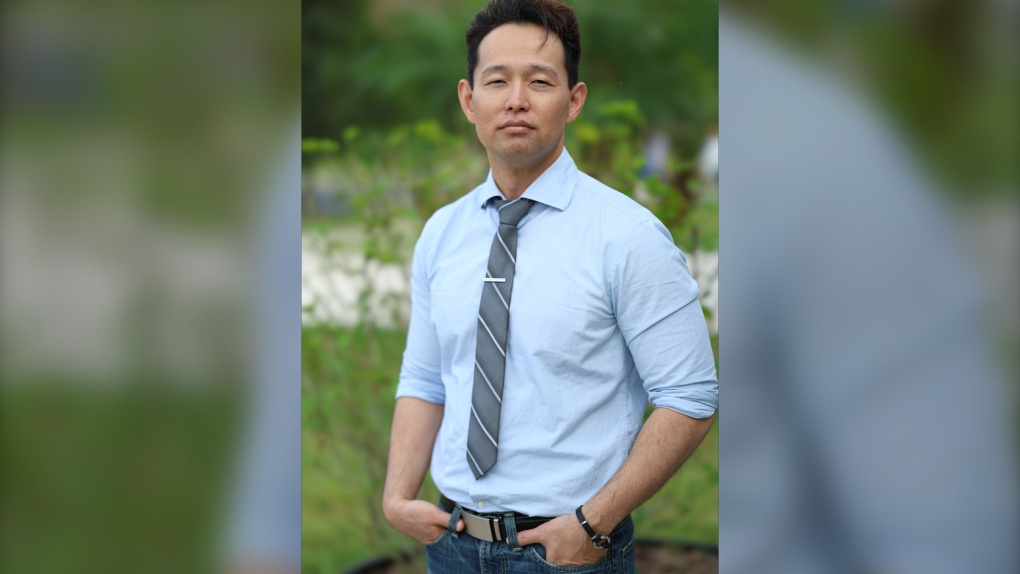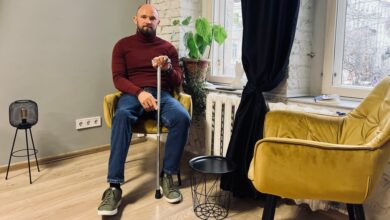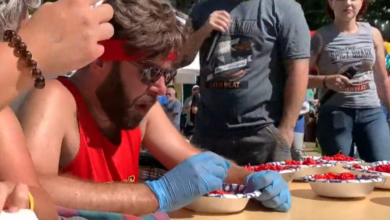Hospital chaplain opens up on death and grief in new book

J.S. Park has heard thousands of deathbed confessions, wishes and regrets as an interfaith chaplain at Tampa General Hospital.
“Very often at the edge of mortality or injury or illness – patients, people, us – we are emotionally vulnerable and we begin to open up about things that may have been kept long dormant,” Park told CTVNews.ca via video call from Tampa, Fla. “I would say, 98 per cent of the time they will tell me the type of person that they had wished that they could have become, what they wish they could have done.”
For nearly a decade, Park has tended to the needs of patients and their loved ones at the 1,040-bed hospital. For every single trauma, death and code blue medical emergency, Park and other hospital chaplains are on-hand to offer spiritual support, grief counsel and assist with end-of-life decision-making
“We see the hardest cases, the hardest types of injuries and illnesses: we get gunshot wounds, fire, fall, stabbing, stroke, drowning, all kinds of things,” Park explained. “As a hospital chaplain, I act as a non-judgmental, non-anxious, comforting presence.”
Released this week, his new book “As Long as You Need” documents his journey and what he has learned about loss.
“It’s part memoir, part hospital stories and part guide through grief,” Park said. “The book is trying to give permission for people to express grief in all the ways that it emerges, whether that’s screaming or shouting, dancing, singing, rolling on the floor, or numbness, fatigue, shutdown, cognitive fog, not being able to cry at all.”
Parks says it’s also important, as the book’s title announces, to take as long as you need to grieve.
‘Take your time’
“I think socially and culturally, we’re taught to suppress that grief, to move on, let go, turn the page, get back into the hustle and grind, and … reintegrate into livelihood again,” he said. “And so I would say, for those who are grieving, take your time and take the time that you need, and be gentle with yourself and be open to that.”
Park describes himself as a former atheist who wanted to be a therapist before embracing Christianity in college. He tends to people of all faiths at the hospital and only discusses religion if a patient brings it up.
“We are not there to convert or to preach, we’re there to be present,” Park said. “Most of my job is listening.”
Hearing so many last words can also offer valuable lessons for the living. While many people don’t have the resources to pursue the lives they want, Park says many others can but ultimately choose not to, or they simply put off things for another day.
“Death, whether it’s 30 years from now or tomorrow, the rift in the ground will open up one day,” Park said.
“And if you can choose, if you have the resources, if you have the ability and capacity, my hope and my goal is to say choose today so that when you do end up in that deathbed, you’d be able to look back and say, ‘I didn’t do it perfectly, but I know I did it passionately, I know I did it fully to the best of my ability.’
“And whether that means more time with children, or pursuing a hobby or a plan or a purpose, whether that means just putting the phone down and enjoying the moment, choose that.”
 In his new book ‘As Long as You Need’, hospital chaplain J.S. Park opens up about death, grief and hearing thousands of last words. (HarperCollins)
In his new book ‘As Long as You Need’, hospital chaplain J.S. Park opens up about death, grief and hearing thousands of last words. (HarperCollins)
Park has also heard troubling confessions, and has had to report ongoing abuse to authorities. He admits his work can weigh on him, and that from eating well to exercising to seeing a therapist and sleeping right, no amount of self-care can undo the things he’s seen and heard.
“The thing that makes me a chaplain and a human is to be open and vulnerable to all my patients, and that’s the thing that makes this work especially hard,” Park said.
“But I also can’t shut that down, I can’t compartmentalize, because the thing that makes me a chaplain and a human is what helps me to do the work. So I’m open to all of it, I feel the grief when it comes, I allow myself to cry and sometimes even to fall apart.”
Searching for the silver lining, Park says being surrounded by death has also made him more appreciative of life. He frequently shares his experiences and insights to a large social media following.
“You know, life really is a flicker: we’re paper lanterns and the simplest spark can make us go,” Park said. “So I really try to be in the moment and try for my patients in the last moments, if they didn’t get to have what they wanted, how can I make the space for them in that moment to have it.”




